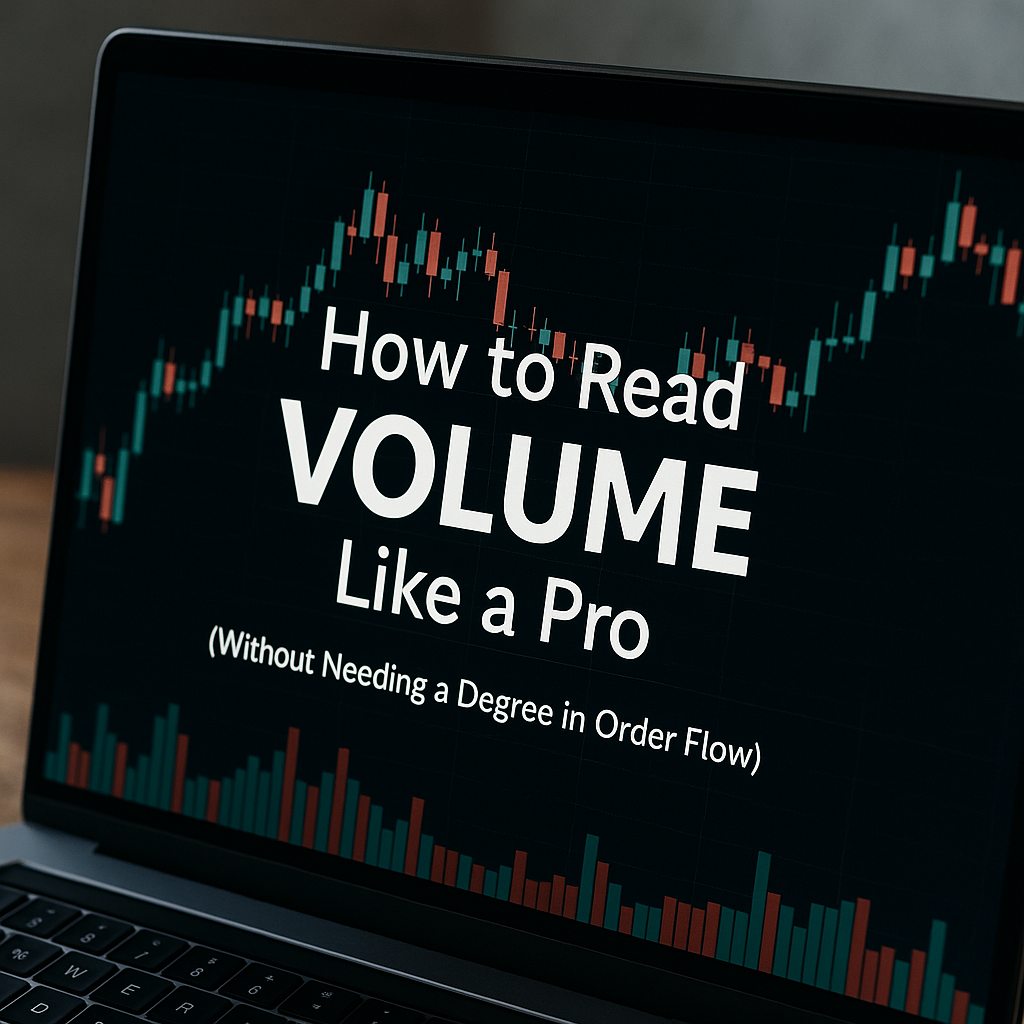Read Volume Like a Pro
(Without Needing a Degree in Order Flow)
Volume is often overlooked by newer traders — or misunderstood entirely.
But used correctly, volume tells you whether the price move you’re seeing is believable — or built on air.
Let’s unpack how to understand volume, what to look for in key situations, and how to avoid the “volume trap” that catches many beginners.
🧠 What Volume Actually Tells You
Volume shows how much participation is happening at a given price. It reflects:
Commitment of buyers/sellers
Strength behind moves
Areas of interest or hesitation
Price moves with volume = power
Price moves without volume = potential trap
🔍 3 Key Volume Concepts to Master
1. Breakout + Volume = Strength
When price breaks a range or level:
High volume = strong move likely to continue
Low volume = likely fakeout or trap
2. Exhaustion Volume
After a strong move:
A sudden spike in volume + reversal candle can mean exhaustion
Everyone who wanted in — already is in
Watch for this on big news days or parabolic runs.
3. Volume Clusters at Structure
When you see high volume in a tight range, it often signals:
Accumulation (smart money building a position)
Distribution (smart money unloading before reversal)
Look for breakouts after volume tightens.
❌ Don’t Just Watch the Bars
Volume bars are helpful, but not everything. Focus on:
Context (Where is this happening?)
Timing (Session open? Close? Pre-market?)
Structure (At key level? Inside range?)
Volume confirms or questions what price is doing.
🛡️ Learn With Titan
Titan Protect includes volume-aware logic built into the signal engine — so you don’t need to guess.
What we provide:
✅ Volume overlays + heat signatures at reaction zones
🔊 Breakout filters that require volume confirmation
📉 Exhaustion markers and reversal signals linked to spikes
🧠 Volume-Sentiment-Structure scoring built into the Confluence Engine
We make volume readable — and useful.
📩 [Want a walkthrough of how we use volume inside Titan? Just ask.]


